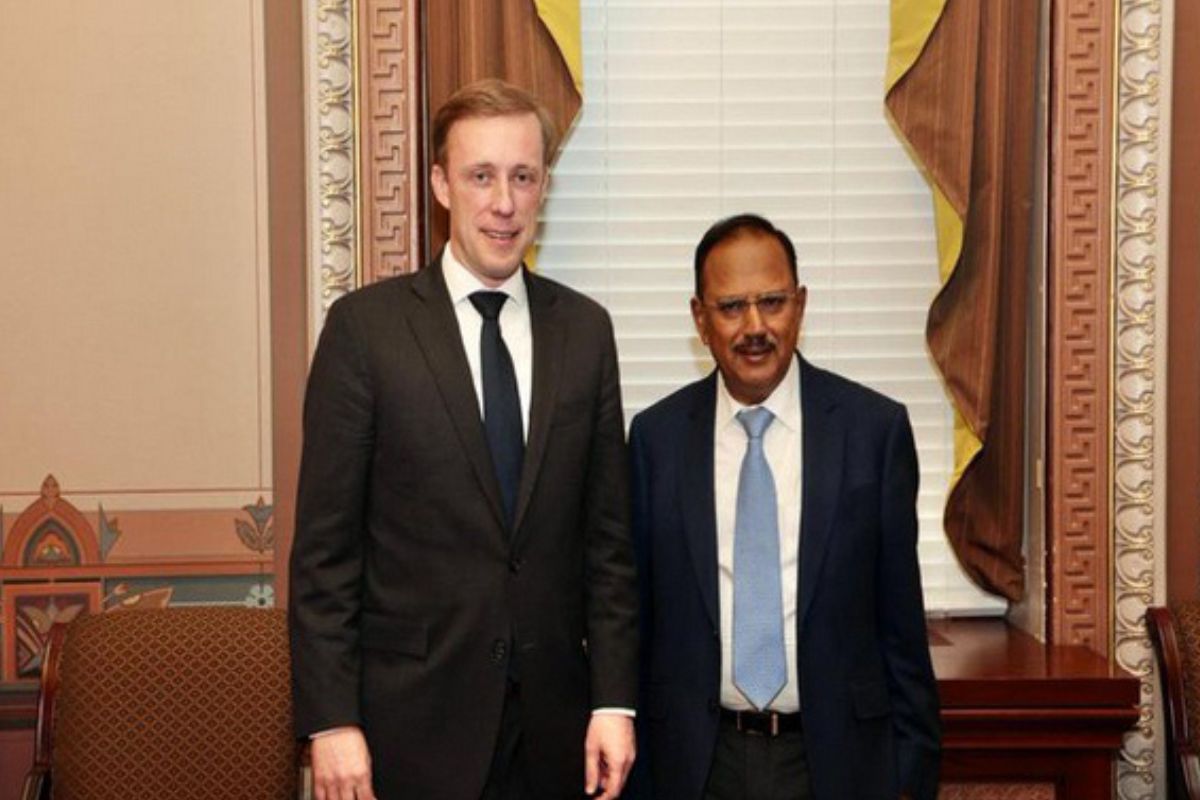Trump welcomes PM Modi with hug at White House, says “we missed you a lot”
Prime Minister Narendra Modi and US President Donald Trump shared a hug as the latter welcomed the former at the White House
The two sides discussed opportunities for greater cooperation in critical and emerging technologies, co-development and coproduction, and ways to deepen connectivity across innovation ecosystems.

(Photo: ANI)
National Security Advisor Ajit Doval and his American counterpart Jake Sullivan formally launched the US-India initiative on Critical and Emerging Technologies (iCET).
Taking to Twitter, Indian Embassy in the US said, “Transforming vision into action! NSAs Ajit Doval & Jake Sullivan formally launched U.S.-India Initiative on Critical and Emerging Technologies(iCET). Announced by @narendramodi & @POTUS,iCET reflects conv.of strategic, commercial and scientific approaches in field of technology.” The iCET was announced in May 2022 by US President Joe Biden and Prime Minister Narendra Modi to elevate and expand our strategic technology partnership and defence industrial cooperation between the governments, businesses, and academic institutions of our two countries, as per the statement.
Advertisement
“The United States and India affirm that the ways in which technology is designed, developed, governed, and used should be shaped by our shared democratic values and respect for universal human rights. We are committed to fostering an open, accessible, and secure technology ecosystem, based on mutual trust and confidence, that will reinforce our democratic values and democratic institutions,” according to the statement released by the White House.
Advertisement
The statement further stated that the two sides discussed opportunities for greater cooperation in critical and emerging technologies, co-development and coproduction, and ways to deepen connectivity across our innovation ecosystems. They noted the value of establishing ‘innovation bridges’ in key sectors, including through expos, hackathons, and pitch sessions. They also identified the fields of biotechnology, advanced materials, and rare earth processing technology as areas for future cooperation.
“The United States and India underlined their commitment to working to resolve issues related to regulatory barriers and business and talent mobility in both countries through a standing mechanism under iCET. This followed the January 30 roundtable hosted by the U.S.-India Business Council with US Secretary of Commerce Gina Raimondo, U.S. National Security Advisor Jake Sullivan, and Indian National Security Advisor Ajit Doval, and other senior U.S. and Indian officials and brought together more than 40 CEOs, university presidents, and thought leaders from both countries to accelerate opportunities for increased technology cooperation,” the statement read.
“To expand and deepen our technology partnership, the United States and India are launching new bilateral initiatives and welcoming new cooperation between our governments, industry and academia in the following domains,” it added.
They signed a new Implementation Arrangement for a Research Agency Partnership between the National Science Foundation and Indian science agencies to expand international collaboration in a range of areas — including artificial intelligence, quantum technologies, and advanced wireless — to build a robust innovation ecosystem between our countries.
Meanwhile, the Indian Ambassador to the US, Taranjit Singh Sandhu said that he signed the Implementation Arrangement between India and US.
“Deepening bilateral cooperation in S&T Delighted to sign the Implementation Arrangement between Dept of Science & Tech @IndiaDST and National Science Foundation @NSF, along with my good friend Panch @DrPanch and in the presence of NSAs Ajit Doval and @JakeSullivan46,” the Indian envoy said in a tweet.
Advertisement